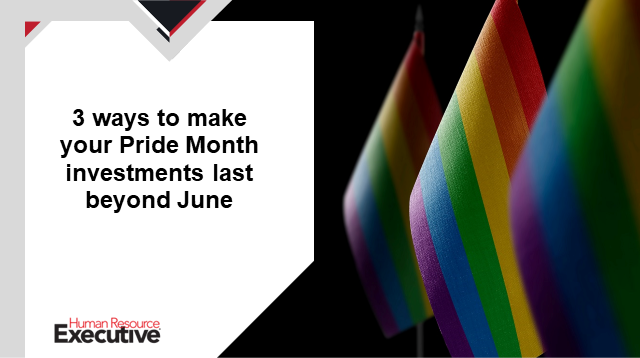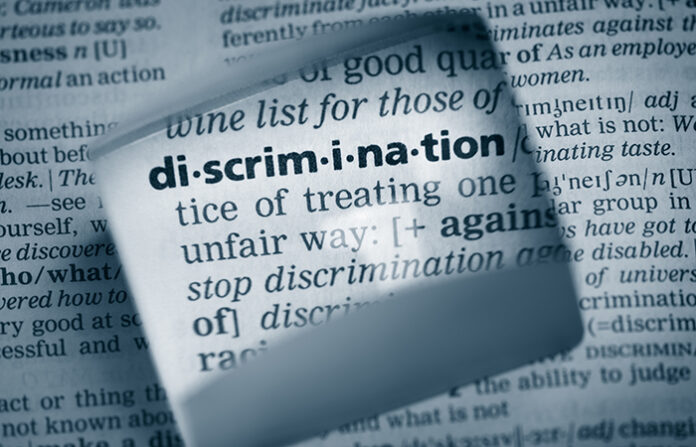There are occasions when hot-button issues in society spill into human resource departments and force the hand of CHROs or SVPs of HR to respond. Such is the case now with antisemitism.
It takes a lot to stop me in my tracks after nearly 40 years of practicing journalism. Reporting on events and issues—a fair share involving bad news—can create a protective layer that serves as emotional, mental and spiritual armor. But a recent assignment did just that.
I noticed a ResumeBuilder.com survey in my inbox that suggested significant job discrimination against Jews. Even though it was an unscientific sampling of 1,131 hiring managers and recruiters, I almost couldn’t believe the findings as both a journalist and Jew.
As many as 26% of survey respondents said they are less likely to move forward with Jewish applicants. Their biggest gripe: Jews have too much power and control. That was just the beginning. More than one-third reported antisemitism as commonplace at work, and nearly the same percentage noted that it’s acceptable in their company.
As I reported in my article on this topic, the research squares with the nation’s rising tide of antisemitism. The number of antisemitic incidents are at an all-time high since the Anti-Defamation League (ADL) began tracking them 43 years ago.
The world’s “oldest hatred,” as one of my Jewish sources referenced, comes at a time when antisemitism is again back in the daily news cycle. It started with rapper and fashion designer Kanye West (now known as Ye) coming unglued about harmful Jewish stereotypes on social media and in various interviews, praising Adolph Hitler and denying the Holocaust, followed by Brooklyn Nets star Kyrie Irving’s tweet of a film chock full of antisemitic tropes and then ex-president Donald Trump dining at his Mar-A-Lago estate with Ye and an infamous young guest known as a Jew-hating Holocaust denier, white supremacist and misogynist.
 This deeply concerns me. I grew up in the Reform branch of Judaism, went to Hebrew school, had a Bar Mitzvah (which my son is currently studying for at age 13) and later a confirmation with classmates. I visited Israel as a college student and spent time with cousins there, including a pilgrimage to the Western Wall, which is considered perhaps the holiest place in the world for Jews who insert prayers in crevasses hoping it will fast track them to God.
This deeply concerns me. I grew up in the Reform branch of Judaism, went to Hebrew school, had a Bar Mitzvah (which my son is currently studying for at age 13) and later a confirmation with classmates. I visited Israel as a college student and spent time with cousins there, including a pilgrimage to the Western Wall, which is considered perhaps the holiest place in the world for Jews who insert prayers in crevasses hoping it will fast track them to God.
I have belonged to multiple synagogues through the years, and while more cultural than observant, my family instilled in me an appreciation for our proud heritage and contributions to making the world a better place. All religions, races, minorities and marginalized groups carry the unbearable weight of negative and hurtful stereotypes.
At a time of growing tolerance and acceptance of people from all walks of life, especially among young generations, I’m stunned by how Jews continue to be cast out in society and demonized on college campuses where a growing movement to boycott, divest and sanction the Jewish state of Israel has fomented hostility and even rage.
As for in the workplace, diversity, equity and inclusion programs are cheered—yet with nary a mention of protecting Jewish workers, managers and executives. Given this backdrop, I find it alarming that many of the survey respondents were younger, though the fact that they also were less educated and made less money at least helped explain these horrific views. Still, I’m worried that the workplace may become increasingly inhospitable to future generations of Jews, including my children, just as is happening across academia.
I realize there are strength in numbers, and in the Jewish community, we simply don’t have that on our side. The Pew Research Center estimates that roughly 14 million Jews in the world represents a mere 0.2% of the population. If not for 6 million Jews perishing in the Holocaust, our population no doubt would have been much larger.
Where do we go from here?
My article referenced an educational platform for organizations and individuals called Shine A Light, which has partnered with the ADL and engaged more than 60 major U.S. companies to address antisemitism in the workplace. That’s a good start. Fortifying DEI initiatives is another, though one of my sources believes they’re a dead-end and instead suggested an entrepreneurial path.
What I ultimately would like to see is a watershed event that’s akin to the birth of Black Lives Matter, #MeToo or LGBTQ rights—a powerful movement forward where our gentile brothers and sisters say enough is enough where antisemitism is concerned. Where peaceful demonstrations spring up across the country. Where African-American leaders help march us to safety. Where books and classes about the Holocaust aren’t banned or cancelled because they’re not for the faint of heart.
Why didn’t these things happen after the worst massacre of Jews on American soil in a leafy Pittsburgh suburb called Squirrel Hill, where my observant Jewish nephew and his family lived within earshot of that tragedy? I frantically searched to make sure they were safe. He was later blown away by how Christian and Muslim clergy spoke out against antisemitism at a local rally. Four years later, why does it still feel like Jews are going it alone?
 Meaningful change has to start at the top, with HR executives reinforcing their DEI initiatives, re-inspecting their culture and revisiting employee resource groups to encourage Jewish employees to form their own ERG if they’re comfortable doing so. We need leadership from influential people and those in positions of power who can counteract the deadly misinformation from those like Ye, who have millions of followers on social media. But it needs to be a concerted effort. We need enough boots on the ground to ensure that antisemitism no longer will be tolerated.
Meaningful change has to start at the top, with HR executives reinforcing their DEI initiatives, re-inspecting their culture and revisiting employee resource groups to encourage Jewish employees to form their own ERG if they’re comfortable doing so. We need leadership from influential people and those in positions of power who can counteract the deadly misinformation from those like Ye, who have millions of followers on social media. But it needs to be a concerted effort. We need enough boots on the ground to ensure that antisemitism no longer will be tolerated.
This is my wish for a safer world for Jews at home and work—one that will require substantial education and an openness to learning about the true history and amazing contribution of Jewish people at a time which, unfortunately, is also highly divisive. This is supposed to be the ultimate age of enlightenment. We know that all expressions of bigotry are steeped in ignorance. But with the help of HR and other leaders, we also know that knowledge will help free the mind, heart and soul.



